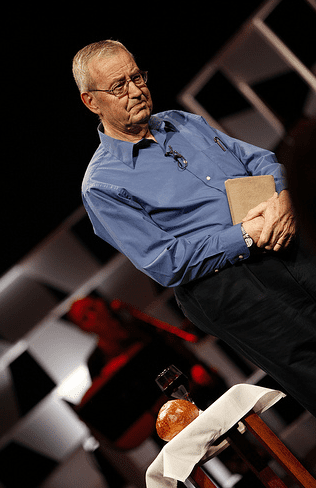Sometimes its the evident arbitrariness of an Old Testament law or, to use the words in this book by Paul Copan, the “weirdness” of a law, that calls into question the divine source of such a law or the wisdom of the law. Copan, in Is God a Moral Monster?: Making Sense of the Old Testament God, examines such questions over a few chapters.
Take this whole thing with purity, or the clean and unclean issues. Our next post will deal with kosher food laws, but today we want to look at the why question. Why these issues with purity?
For you, what’s the point of the purity laws? The kosher laws? the “weirdness” laws?
Copan’s approach is theological: God is holy, God is Life, God is Other. Therefore, God’s people, who have been brought into relation with God through election and through the covenant, are to be like God — to be holy.
Further, the laws are expressions of what God expects for redeemed and covenanted people. He quotes Chris Wright to say there is a grace leads to gratitude and obedience paradigm.
So far the theological and covenantal dimensions … and they do find expression in purity laws. But he then explores a cosmic or ethical sense: the laws of Israel express the reality that God is God over all of life, and the laws often express God’s sovereign rule over the fullness of life.
Copan points to an excellent point: our culture sees religion as private and God belongs to your personal (not public) life. But the purity laws rattle that theory to pieces: God is holy and fully holy so all of life is holy, including the public and the personal. So, God doesn’t belong to the private to all of life.
Which leads to the big idea behind laws on clean and unclean:
It’s about life and death. Uncleanness symbolizes loss of life; cleanness symbolizes life. Whether we are talking about ritual or moral impurity, life and death are at work in all these laws.
And the mixing restrictions — kinds of clothing, no mixed breeding, no two seeds in the same field, no two family members having sex, the sexes are to be kept apart … and here, while Copan doesn’t explore the life/death issue, and these are those ideas that make the life/death paradigm strain itself to explain itself, he does see these issues to be about wholeness and integrity and completeness — and I suppose life is whole and death is the tearing apart of the wholeness.
Well, OK, I see his points but there are other dimensions, and I prefer the explanation that the purity laws are about order: things alike belong together; things not alike belong apart; and taxonomically irregular items are not to mixed with regular items. It’s about boundary markers. So, God is holy and God’s people are to be holy, and separation from sinners is because God’s people is “like” God and “unlike” sinners so they are to be together and not mixed with sinners. I take sides with Mary Douglas on this one: Purity and Danger: An Analysis of Concepts of Pollution and Taboo (Routledge Classics).
So the issue is election and covenant belong. Their taxonomic status of the Israelite is holiness due to connection with God. That is sufficient ground for Israel being unlike her neighbors.
Giving rise, so it seems to me, to some arbitrariness to the laws at the concrete (though not theological) level. Because God is holy and Israel is to be like God, if God says X then Israel is to do X. It’s a relational thing more than a life/death thing, though life and death can be brought into the equation at points.












